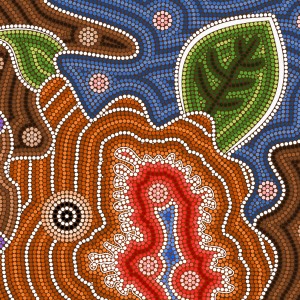
Around 3% of the Australian population identify as Aboriginal. Research shows that Aboriginal and Torres Strait Islander people die at a younger age than non-indigenous people.
They also have more hospital admissions and are more often diagnosed with serious health conditions including cardiovascular disease, cancer and diabetes than non-indigenous people and the onset tends to be at a younger age.
Other issues that impact more on Aboriginal and Torres Strait Islander people include respiratory health, eye health, ear health, oral health, disability, and social and emotional wellbeing.
The Australian Government Department of Health works with other Government Departments to deliver effective and efficient aboriginal health services.
The Indigenous Australians’ Health Programme was established in July 2014 and the Australian Government has committed to invest $3.1 billion until 2018 to Indigenous specific health programmes and activities.
Such programmes include the Better Start to Life which aims to improve child and maternal health, and Healthy for Life which aims to improve the management of chronic disease through Aboriginal community controlled health organisations.
When asked why work in aboriginal health, professionals often say they are driven by a desire to reduce the inequality of healthcare among Australians.
They also have a deep appreciation and respect for the population they support, and enjoy the ability to control their own working hours while being seen as a valued member of the local community.
Although their role is sometimes challenging, they celebrate small achievements and are undeterred by the larger issue of social disadvantage.
Working in Aboriginal health services provides the opportunity to work in unique and challenging environments which can result in improved clinical skills.
There is also the opportunity to understand more about the kin networks, traditions, beliefs and heritage of Australia’s indigenous population.
Registrars undertaking a placement in an aboriginal health service may qualify for financial incentives and grants for working in regional, remote and rural areas.
Medical staff are often supported by Aboriginal Health Workers, allied health professionals who work closely with both the patient and the health care team to ensure that the healthcare practitioner clearly understands the patient’s symptoms and/or objectives, and also that the patient has a good understanding of any diagnosis, treatment and advice.
Help close the gap between the health of indigenous and non-indigenous Australians by being part of improved access to quality, culturally appropriate health care through work in aboriginal health services. Don’t forget to browse our selection of aboriginal health jobs for your next career opportunity.
